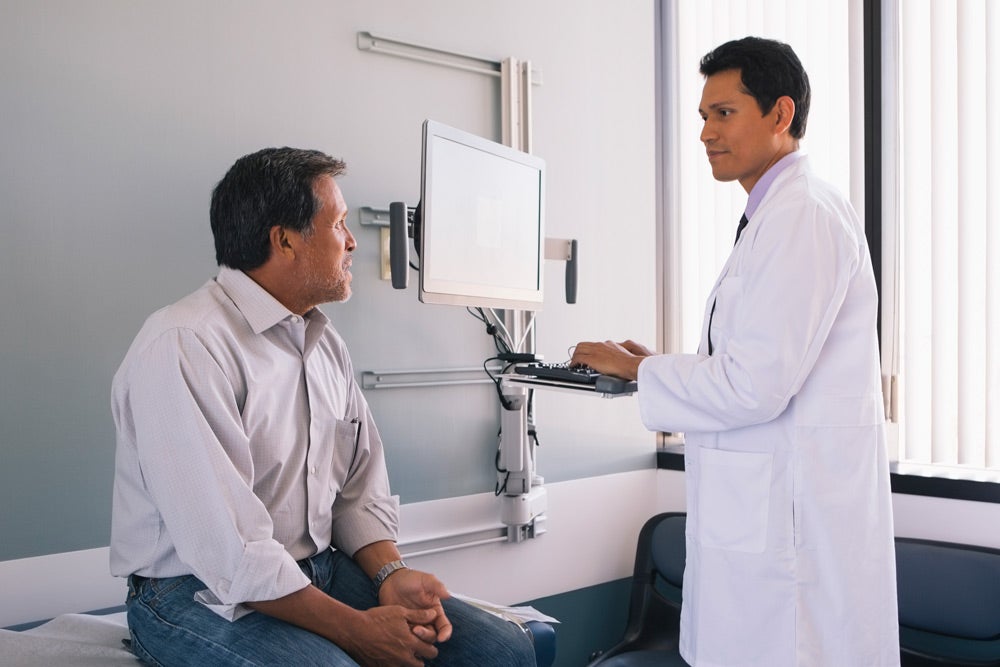
Sensitive care you can count on.
At [Hospital], we know how much a urologic condition can impact your life—and how difficult it can be to discuss. Whatever you’re dealing with, we’re here for you with a full range of treatments and unmatched compassion at every step.
Our board-certified urologists specialize in issues affecting the bladder, kidney, prostate, ureter, urethra, and pelvis. From common concerns like urinary tract infections and erectile dysfunction, to complex disorders causing urinary incontinence or pelvic pain, we’ll work with you to find the right solution.
If surgery is the best option, we offer the latest minimally invasive and robotic-assisted techniques. These procedures offer more precision with fewer incisions, so you can feel better and get back to your life faster.

Urologic conditions we treat
We provide personalized care plans and advanced treatments to help both men and women find lasting relief. Just some of our specialties include:
Urinary incontinence (UI)
Anyone can experience this loss of bladder control, though it mostly affects women and can be caused by pregnancy and childbirth, obesity, menopause, and other medical conditions. Treatments range from medication and bladder training exercises, to procedures that help prevent symptoms.
Enlarged prostate
Benign prostatic hyperplasia (BPH) affects over 50 percent of men, especially those over 80. As the prostate gets larger it pinches the urethra, which can affect urine flow and wake you up several times a night to go. Medication can help shrink the prostate or relax the muscles, while minimally invasive surgery may be recommended for more severe symptoms.
Pelvic floor disorders
These occur when the "sling" that supports the pelvic organs becomes weak or damaged, causing issues like incontinence or prolapse, when those organs drop from their proper place and create an uncomfortable bulge. You can often find relief with lifestyle changes or exercises to strengthen the pelvic muscles.
Prostate cancer
Other than skin cancer, prostate cancer is the most common cancer among American men. Fortunately, most prostate cancers are highly treatable when caught early. New minimally invasive techniques like robotic prostatectomy offer less pain and faster recovery, while protecting the delicate nerves that control urinary and sexual function.
Kidney stones
These small, pebble-like objects can form inside the kidneys and cause a variety of symptoms, including intense pain in your side, back, and lower abdomen, or urinary difficulties. Smaller stones can be passed with help from medication to ease the process; larger ones may first need to be broken up or removed with non-surgical treatments like ureteroscopy.